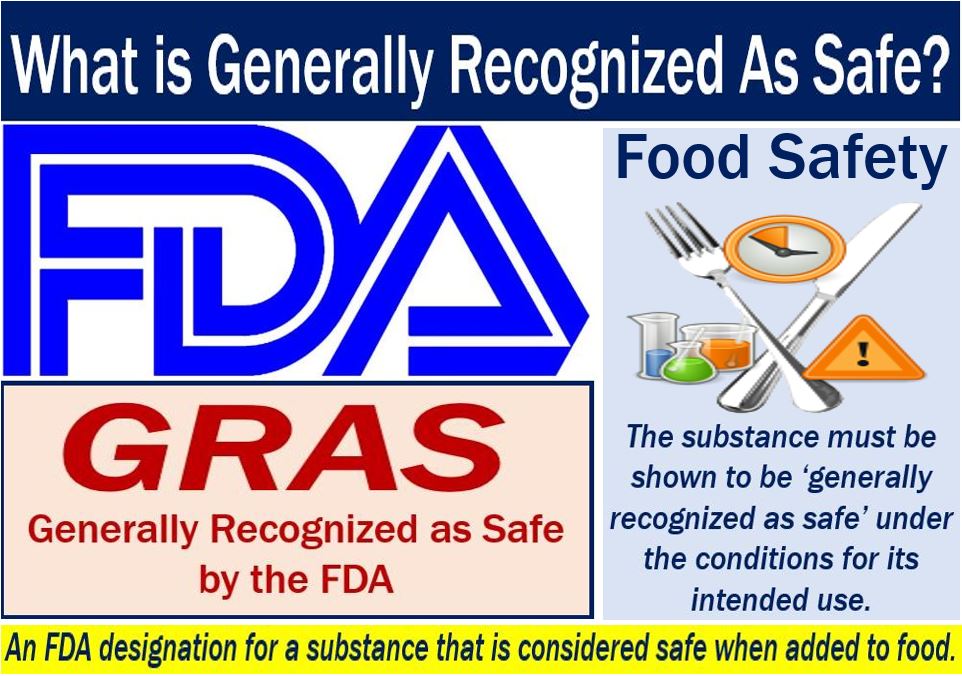What is GRAS (Generally Recognized as Safe)?
Generally Recognized as Safe or GRAS is an FDA designation for a substance that it considers as safe. FDA stands for the Food and Drug Administration. The FDA is a federal agency of the United States that is responsible for protecting and promoting public health.
GRAS is an acronym. Therefore, we pronounced the letters as a word. In other words, we do not say ‘G-R-A-S’ (we do not utter each letter’s name separately).
Substances that the FDA considers as generally recognized as safe include those present in pesticides and food, for example. Specifically, however, the term applies to foods. In other words, if a substance, such as a pesticide, has a safe status, its presence in food is not harmful to human health.
A substance that the FDA generally recognized as safe is exempt from the FFDCA food additive tolerance requirements. FFDCA stands for Federal Food, Drug, and Cosmetic Act.

GRAS designation and listing
Substances can be generally recognized as safe either by self-affirmation or by qualified non-governmental experts.
Self-Affirmation
The pharmaceutical, food, or agricultural chemicals company had performed all the necessary due diligence on the substance.
Additionally, an expert panel had reviewed all safety concerns.
The manufacturer is willing to use its findings to defend its chemical’s or substance’s generally recognized as safe status.
FDA Response to GRAS Notification
The company had performed all the aforementioned research, etc. It submitted a notification, informing the FDA of a determination that the use of a chemical or substance is safe. In other words, it believes it is generally recognized as safe.
The FDA, following the evaluation, subsequently responds in three possible ways:
– The FDA accepts the manufacturer’s determination that its substance is GRAS.
– There is insufficient data to give the substance a generally recognized as safe status. In other words, the manufacturer’s notification does not contain a sufficient basis for a GRAS determination.
– The notifier has requested that the FDA stops evaluating the GRAS notice. So, the FDA subsequently ceases evaluating it.
“Irrespective of whether a substance is deemed to be GRAS or if its safety is established through a premarket approval process, the safety determination is always limited to the substance’s intended conditions of use.”
The FDA urges manufacturers to review their GRAS notification submission procedures thoroughly .
They must do this before they send their notification to the agency. Additionally, the manufacturer may, if they wish, request a pre-submission meeting with the agency.
Video – Food additives
This WebMD video explains what food additives are. It also tells us how we can break them down into different categories.
The speaker reveals that, in fact, the FDA does not regulate all food additives. There is a loophole.

